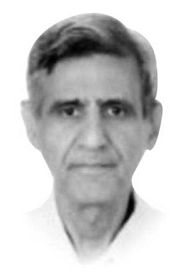
At any given moment, public opinion is a chaos of superstition, misinformation and prejudice. – Gore Vidal
The proposed amendments to the Prevention of Electronic Crimes Act (PECA) in Pakistan have sparked significant debate. The government aims to introduce stricter penalties for spreading fake news, including up to five years in prison and a fine of up to Rs1 million. Additionally, defamation will be made a non-bailable offence, and a new regulatory authority, the Digital Rights Protection Authority (DRPA), will be established to regulate online content and restrict access to social media platforms. The amendments also propose regulations for social media platforms, with the goal of protecting national security and public order by regulating online content, including the spread of fake news and hate speech. However, concerns have been raised about the potential misuse of PECA for victimising political opponents and their digital supporters.
While the amendments aim to address concerns around fake news and hate speech, they also raise concerns about censorship, freedom of expression and the potential for misuse. The definition of fake news will always remain in the grey area in a country like Pakistan. Turning false to fake and fake to false will serve as a potent weapon of the executive arm of the government.
Realistically viewing, the proliferation of false and fake news has become a pressing concern for civilised nations worldwide. The dissemination of misinformation can have far-reaching consequences, eroding trust in institutions, manipulating public opinion, and even inciting violence. As such, it is essential to differentiate between false and fake news, and to examine the legal and ethical implications of each.
False news refers to inaccurate or misleading information that is spread unintentionally. This can occur due to errors in reporting, misunderstandings, or the dissemination of outdated information. False news can be corrected through fact-checking, retractions and apologies.
On the other hand, fake news refers to deliberately fabricated information designed to deceive or manipulate the public. Fake news is often spread with malicious intent, such as to influence elections, discredit opponents, or promote propaganda. Fake news is a more insidious phenomenon, as it can be difficult to distinguish from genuine news.
From a legal perspective, civilised nations have implemented various measures to combat fake news. For instance, many countries have enacted laws against defamation, libel and slander, which can be used to prosecute individuals or organisations that spread fake news. Additionally, some nations have established regulatory bodies to monitor and fact-check news content.
However, the regulation of fake news raises complex ethical concerns. On one hand, governments have a responsibility to protect their citizens from misinformation. On the other hand, over-regulation can infringe upon freedom of speech and the press. Civilised nations must strike a delicate balance between protecting the public from fake news and preserving the fundamental rights of citizens to express themselves freely.
Ultimately, the differentiation between false and fake news requires a subtle understanding of the complexities involved. While false news can be corrected through fact-checking and retractions, fake news demands a more robust response, including legal and regulatory measures. As civilised nations counter the challenges posed by misinformation, they must prioritise both the protection of their citizens and the preservation of fundamental freedoms.
A verse by Faiz comes readily to mind when the freedom of expression demands courage and sacrifice for breaking the shackles.
Mata e loh o qalam chhin gaee to kya gham hai;
Keh khon e dil mai dabo li hain ungliyan hum nai
The writer Haroon Rashid Siddiqi is a retired Pakistani professional currently based in Milton, Canada





